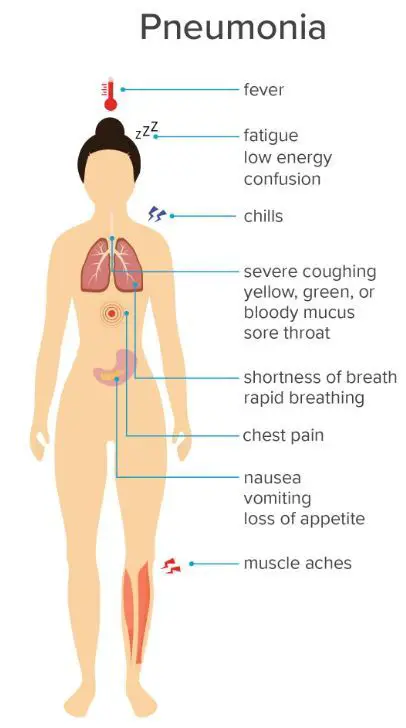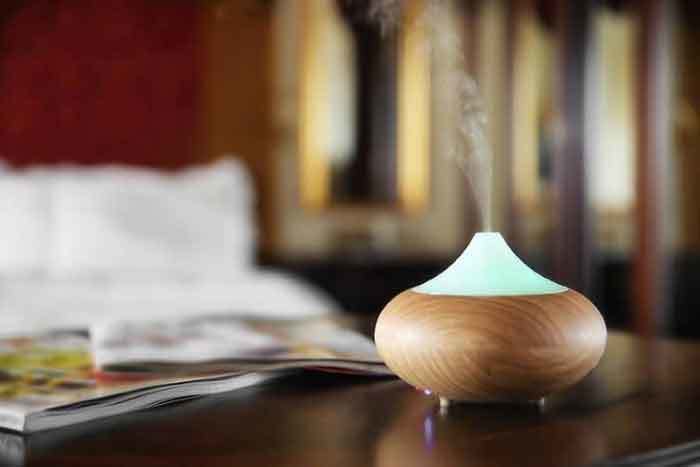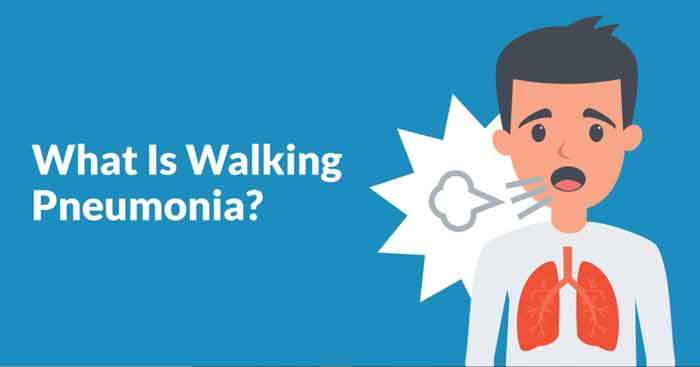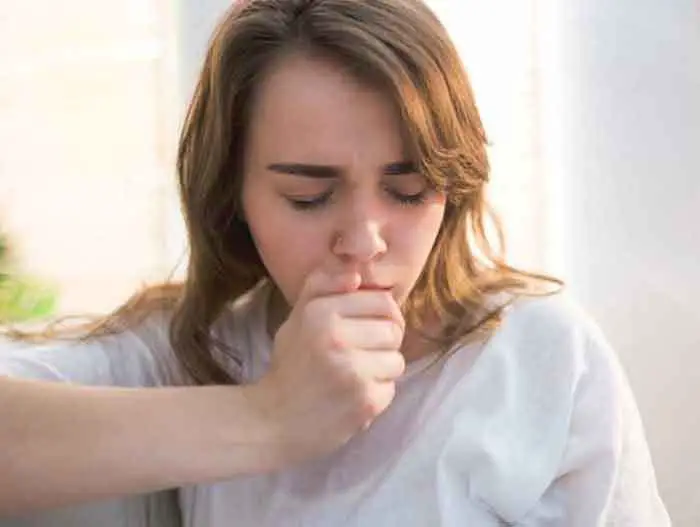Is a Humidifier Good for Pneumonia? – A COMPLETE Guide
As an Amazon Associate, I may earn from qualifying purchases at no extra cost to you.

Coughing, fever, sniffling - the common cold, flu, and pneumonia all share similar symptoms but aren’t quite the same and could easily be mistaken for one another.
Out of the three, pneumonia has the most severe symptoms and requires the most care!
Dry air is a strong irritant that can cause coughs, and if we can eliminate that cough or just the dry air, we’ll be doing a major step towards managing this symptom.
Naturally, a humidifier seems like the best possible way to eliminate dry air. But, is a humidifier good for pneumonia?
Let’s hack our way through the connection between humidity and pneumonia once and for all and find out.
More...
Related: Best Humidifier for Pneumonia.
What is pneumonia?

Pneumonia occurs when there is inflammation of the lung tissue, akin to a red alert in the lungs.
This is typically in response to some injury or irritation and is often followed by pain and a feeling of pressure.
This pressure can be caused by fluid buildup, which is known as “pleural effusion” or “water on the lungs”.
However, it’s hard to know the exact cause without a doctor. Doctors know that anything can cause a pneumonia.
Pneumonia is not an illness on its own but it is a complication of the common cold and flu, most commonly after the immune system has been weakened through some other medical procedure.
Pneumonia can happen after surgery, when the patient is frail, in pain and can’t cough or breathe properly. If the patient doesn’t have proper care, pneumonia can even be fatal.
People who are already in a hospital for whatever reason die from pneumonia more than any other infection. Pneumonia is no joke and actually kills.
How does pneumonia develop?
In healthy lungs, everything is squeaky clean. There are no bacteria, viruses or other nasties.
To enter the lungs, these nasties have to go past the nose, sinuses and throat, all of which work as a bulwark that lets only the fresh air through. Any nasties get trapped outside lungs, where the body can deal with them more easily.
Sniffling means the nasties have entered the nose and sinuses. Coughing means they’ve entered the throat.
Fever means the nasties have entered the lungs – that’s when we’ve got pneumonia and the body starts fighting.
The body will fight pneumonia through sneezing and coughing to push out the nasties but if there’s swelling in the lungs, there’s all this strain and exhaustion that leads nowhere.

Symptoms of Pneumonia
There can also be lifelong health problems that constantly lead to pneumonia, such as a birth defects of the throat.
One such defect is LTC, a subtle cleft in the throat that leads to food particles constantly getting stuck in the lungs which in turn cause pneumonia.
How is pneumonia treated?

Most commonly, with antibiotics. This is both a good and a bad thing.
The good thing about antibiotics is that they’re convenient, powerful and fairly cheap.
The bad thing is that overuse of antibiotics and patients throwing them away as soon as symptoms decrease causes the nasties to simmer down but emerge later on resistant to those antibiotics.
Use antibiotics responsibly and don’t throw away the pills when you start feeling better.
Always finish the entire prescribed dose, even if the symptoms go away.
However, if the symptoms linger while you're still on the medication, here's what else you can do to alleviate the symptoms:
Vitamin C
The best way of dealing with pneumonia that saves those weeks of your life is low-key prevention, such as by taking vitamin C and daily hygiene.
Vitamin C is a powerful booster of the immune system that helps reduce inflammation.

Daily Hygiene
Wash your hands thoroughly with soap!!
When we get sick, we often get bacteria on our hands which then spread on everything our hands touch. Washing our hands well is the solution to this. Here's a step-by-step video on how to properly clean hands.
Alternatively, wet baby wipes or hand sanitizers can also help to maintain daily hygiene inside your dwelling.
Wipe down your face, hands, doorknobs, smartphones, keyboards, light switches and anything else you happen to touch with your hands.
Use wet baby wipes with abandon since they don’t have harsh chemicals that can be another irritant for the lungs.

Using a humidifier
Lastly, you guessed it! Using a humidifier.
Pneumonia can cause a great deal of discomfort and suffering to those with the disease.
What a humidifier can do is help to eliminate dry air, ease the irritation, reduce swelling, and help the lungs clear out on their own.
By moistening nasal passages and airways, a good humidifier provides greater comfort and easier breathing.
Is a cool mist humidifier good for pneumonia?

First, let’s take a look at how temperature affects the chances of getting pneumonia.
A 2019 South Korea study looked if there was any link between the change in daily temperature and cases of pneumonia in Seoul over the course of 6 years.
The study looked at over 217,000 Seoul patient reports and found that what we call “pneumonia weather” is real – when the weather suddenly gets warm, there is a higher chance of getting pneumonia after 7 days or so, which is how long it takes for symptoms to appear.
However, this pneumonia weather only happened if temperature rose up to 6 °C (10.8 °F) in a day; anything above that actually protected people from pneumonia.
The explanation for why 6 °C (10.8 °F) is the threshold in the study is that the weather becoming slightly warmer made people become careless and dress lightly.
The conclusion from the Seoul study is that pneumonia grips when cold shock happens, meaning when the temperature suddenly drops.
So, can cool mist humidifiers cause this cold shock?
On their own, cool mist humidifiers are too small to be able to cause the cold shock.
Compared to massive cold fronts, a cool mist humidifier is easily dealt with by simply – turning it off.
Hence, it appears that while not statistically significant, a cool mist humidifier can slightly lower irritation caused by dry air.
So, if it helps ease your pneumonia symptoms (eg: cough), keep using it!
Using humidifiers for walking pneumonia

Mycoplasma (AKA "walking") pneumonia is a bacterial infection that often starts in the upper respiratory tract and works its way to the lungs.
(Click here for the differences between pneumonia and walking pneumonia)
Walking pneumonia is caused by a special kind of bacteria that is resistant to most antibiotics and hospitals across the world have found this exact same bacteria in their patients, who often don’t even notice the symptoms.
These walking pneumonia patients often have no other symptoms except cough but can still infect others.
Walking pneumonia outbreaks thus spread in close quarters, such as military bases and schools.
So, would a humidifier help with walking pneumonia?
Is a humidifier good for walking pneumonia?

A 2012 national study tracking children over four years showed that pneumonia cases peaked during rainy season, when humidity was highest.
While sunlight was the biggest protective factor against pneumonia, humidity was a telltale sign pneumonia cases are about to spike.
The study states “rainfall and humidity were also associated with pneumonia incidence in some of the analyses, but not as consistently as sunlight.”
Authors noted that the children, who were Filipino, had a poor diet, starting school during rainy season - both of which could be helping pneumonia spread.
What we can conclude is that eating a solid diet, steering clear of coughing people, and exposing ourselves to sunlight has the biggest impact on how our walking pneumonia turns out.
In addition, humidifiers can help to increase your comfort levels (although the impact is small).
If you feel dry air is making you uncomfortable, try using a humidifier and see if it makes you feel any better.
Can a humidifier actually cause pneumonia?
- Like we saw from the Philippine study, there are positive and negative factors at play that cancel each other out to decide whether we get pneumonia.
- But, as we saw from the Seoul study, it takes a significant and sudden drop in temperature to cause pneumonia.
- Humidifiers, whether cool mist or not, are not strong enough to be a negative factor for pneumonia since they can’t produce a significant and sudden drop in temperature.
Conclusion: Is a humidifier good for pneumonia?

Let’s hope none of our loved ones ever get pneumonia.
However, if they do, we should be fully prepared to ease their symptoms until we can get them proper medical care.
Easing pneumonia symptoms means understanding that it is a complex health problem that isn’t caused or cured by such a small gadget as a humidifier.
However, humidifiers can give a small sense of comfort by moistening the dry air we breathe in and thus help us wait it out.
Pneumonia is at its core an exercise in patience, where the patient has to be patient.
The idea is to make ourselves comfortable and wait it out while avoiding cold shocks, taking vitamin C, maintaining daily hygiene and steering clear of other people with pneumonia.
All in all, the quickest solution would be to consult your doctor and get treatment.
Who would have coughed it.

